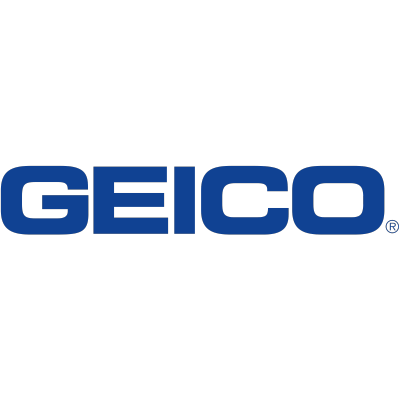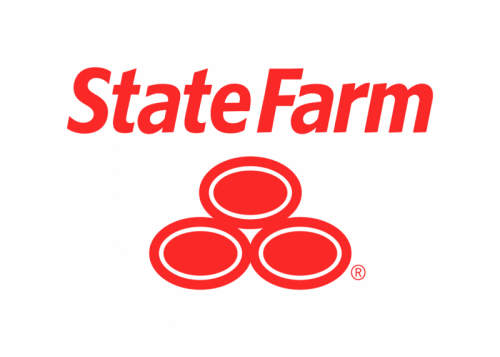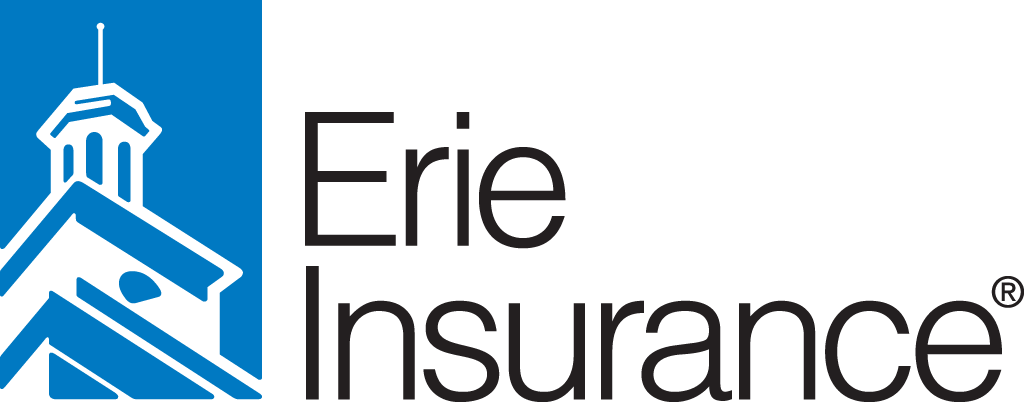There's no doubt that the cost of auto insurance has exploded. Still, it's worth your time to explore which insurers offer lower policy costs without compromising coverage or quality. While premiums for required and optional coverage are less expensive than competitors, the best cheap auto insurance companies still provide top-notch claims handling, an easy quote process, and multiple discount opportunities.
To find the best auto insurance for customers who are looking for a bargain, The Ascent reviewed average premiums, policy availability, and insurer reputation. The goal was to find insurance policies offering low prices for drivers in all different situations and to see which insurance companies provided the top-notch service that all customers deserve.
The Ascent's best affordable car insurance of 2024
- Cheapest for good drivers: Geico
- Cheapest for military members: USAA
- Cheapest for drivers with accidents: State Farm
- Best for bundling home and auto insurance: Nationwide
- Best for predictable pricing year over year: Erie Auto Insurance
- Cheapest for poor credit: Geico
Cheapest auto insurance for good drivers: Geico

Bottom Line
Geico is one of the most affordable insurers available, with the national average rate for all drivers coming in at $2,106.
Geico not only offers comprehensive auto insurance coverage options at premiums that beat out most competitors, but it also promises to save customers 15% or more on car insurance. Insurance is available in all 50 states, and there are additional discounts for military members, good students, federal employees, seniors, and others who belong to certain groups or organizations.
Pros
- Nationwide coverage
- Affordable premiums
- High customer satisfaction
- Efficient claims handling process
- Great online application and account management experience
Cons
- Limited insurance coverage beyond auto insurance
- Fewer local agents than competitors
Stand-Out Coverage Options
- Mechanical Breakdown Insurance, which provides coverage for repairs and is available for new or leased vehicles that are less than 15 months old and have less than 15,000 miles
- Auto Repair Xpress® program can get motorists back on the road faster after an accident as they'll get priority repairs and streamlined claims processing
- Rideshare insurance is available
Cheapest auto insurance for military members: USAA

Bottom Line
USAA offers military members and their families some of the best auto insurance coverage available. Premiums are lower than most competitors, with average premiums of $1,844 for all drivers compared with a $3,017 national average for all insurers.
USAA also offers plentiful coverage options and many opportunities to save further with premium discounts. Free accident forgiveness coverage after five years also means premiums won't go up if a crash happens. USAA is open only to military members, veterans, and their families. For those who qualify, it's likely their best bet for car insurance.
Pros
- Premiums are cheaper than with most competitors
- High customer satisfaction ratings
- Policy discounts (for good students, for housing a car on a military base, and more)
Cons
- No coverage available outside of current and former military members, and their families
Stand-Out Coverage Options
- Free accident forgiveness after five years
- Rideshare insurance is available
Cheapest auto insurance for drivers with accidents: State Farm

Bottom Line
State Farm offers national average premiums of $2,770 for all drivers -- nearly 10% below the national average for all insurers.
The insurer also offers multiple opportunities for discounts, including for bundling coverage. But the best savings comes from the different programs it offers for young drivers, including Steer Clear and a good student discount. With comprehensive coverage options and low premiums, parents and teens can rest assured they're protected in case of an accident.
Pros
- High customer satisfaction rankings
- Nationwide agent network
- Access to array of insurances under one roof
- Doesn't penalize drivers with accidents too heavily
- Offers a variety of discounts to help drivers save
Cons
- A low credit score can increase premiums
- Agent quality within its network can be inconsistent
Stand-Out Coverage Options
- Steer Clear program offers discounts for policyholders under the age of 25
- Optional car rental and travel expense coverage pays not just for a rental vehicle but also travel expenses to the driver's home or destination if an accident happens 50 or more miles home
- Rideshare insurance is available
Best for bundling home and auto insurance: Nationwide

Bottom Line
Nationwide's average annual premium for all drivers is $2,697 -- below the national average of $3,017.
Pros
- Many different types of insurance policies are available so there are ample options to bundle coverage and earn discounts
- SmartMiles option bases premiums on how much someone drives, so those who don't use their vehicles often can get more affordable coverage
- Nationwide earned top marks on J.D. Power's shopper satisfaction survey
Cons
- Some reviewers indicated Nationwide was more expensive than competitor policies
- No rideshare insurance available
Best for predictable pricing year over year: Erie Auto Insurance

Bottom Line
Erie's national average premiums come in at just $2,273 , making it one of the most affordable auto insurers.
For those concerned about rising premium prices, Erie's Rate Lock can alleviate those worries. Premiums change only if the policyholder makes changes, such as adding or removing a driver or moving where the vehicle is stored.
Pros
- Great customer service
- Rare policy features are standard
- Ridesharing coverage
- ERIE Rate Lock option
Cons
- Limited availability
Stand-Out Coverage Options
- Erie Rate Lock ensures that your rate will stay the same, unless you add or remove a vehicle or a driver or change the address where you keep your vehicle parked.
- Erie also includes free roadside assistance, a diminishing deductible for each consecutive year claims-free, and bundle options.
Cheapest auto insurance for poor credit: Geico
Drivers with low credit undoubtedly face more expensive insurance costs. Insurers take credit scores into account when setting premiums. That's why motorists will need to shop around more carefully to find the most affordable carriers when their credit score isn't as high as they'd prefer.
Geico offers affordable options for drivers with low credit. Average premiums for a 35-year-old driver in Florida with poor credit who uses the car for commuting would be $2,814. By comparison, the average premium among all insurers in Florida for the same driver would be $3,688.
Best cheap car insurance by state
Car insurance prices can vary by state. In Ohio, for example, average insurance premiums are $2,238, while premiums in more expensive states such as Michigan average $5,766.
Here are some of The Ascent's picks for the cheapest car insurance by state:
How to get cheap car insurance
Price is one of the key factors that drive customers' satisfaction with their car insurer, according to J.D. Power & Associates. So if you're wondering, "Where can I get cheap car insurance?" you aren't alone.
To help find cheap car insurance, here are nine steps a motorist can take:
- Get quotes from several auto insurers: Prices can vary a lot from one insurer to the next. When looking for the best company for auto insurance, aim to get at least three auto insurance quotes. This will let you compare prices. Someone who has their VIN handy will have an easier time receiving more accurate quotes.
- Choose the right vehicle: Some cars are cheaper to insure than others. Drivers who want cheap auto insurance can opt for a mid-priced vehicle to keep costs down. Ideally, they should choose one with an alarm and lots of safety features.
- Pay premiums annually: Most insurers offer a discount if a driver pays their insurance premiums annually. If they choose not to pay monthly, they can get the best cheap car insurance without compromising coverage.
- Make sure your credit history is error-free: Many car insurance companies use a driver's credit history to help set premiums. When shopping for cheap car insurance, motorists should make sure the information on their credit report is accurate. Mistakes could make a driver seem like a riskier borrower. You can contact the major credit bureaus to correct errors.
- Limit who drives the vehicle: Insurers may charge more if the policyholder has a teen driver on their policy. A driver with a history of accidents or moving violations is also more costly. People who want the best cheap car insurance shouldn't let other people use their vehicles. Insurers could raise rates as a result.
- Take a defensive driving course: Many auto insurance companies offer discounts for customers who take courses to improve their driving skills. This can be most valuable for teens, but adults can benefit, too.
- Buy only the necessary coverage: People definitely need liability coverage to protect against losses they cause. But they may not need roadside assistance if they already have AAA. If a driver has an older vehicle, they may also decide to drop collision coverage. This pays for repairs or replacement of the vehicle. Drivers with hefty emergency savings may also opt for higher deductibles. High deductibles lead to lower premiums. But drivers will have to foot more of the bill if they need to use their insurance coverage.
- Bundle coverage: Drivers can look for a cheap insurance company that sells several types of insurance. People can get significant discounts if they combine auto insurance with other policies, such as homeowners insurance. These can help get the best cheap car insurance.
- Ask about other discounts: Those looking for the best cheap car insurance will find many insurers offer other savings. For example, young drivers could get good grade discounts. Many companies also offer discounts for having an advanced degree, being married, working for certain employers, or owning a home. Check out The Ascent's guide to discounts on car insurance for some examples of how you can save.
Learn more: How to get very cheap car insurance
Are there risks to cheap car insurance?
Drivers looking for cheap insurance must not compromise protection for price. While it's a good idea to shop around to find an affordable auto insurance carrier, drivers should be wary of dropping optional coverage or maintaining only minimum coverage in order to save on premiums.
While most states only require certain types of insurance, such as liability coverage, individual drivers often need more protection than the minimum coverage would provide.
Buying minimum required coverage is undoubtedly less expensive. The national average premium for liability-only coverage come in at just $787. However, without optional protection, drivers could be forced to pay to repair or replace their vehicle out of pocket if something goes wrong. Their insurance would only cover losses they cause to others.
Ask the experts

Craig Seidelson, Ph.D.
Assistant Professor of Operations and Supply Chain Management at The University of Indianapolis
How can shoppers know they're getting the cheapest car insurance?
All things equal, the best car insurance rates typically go to those with the highest credit scores. The logic being higher scores correlate with lower chances of filing claims. Less claims result in cheaper rates. There are, of course, some caveats. Insurance scores are not exactly the same things as credit scores. Unlike credit scores, insurance scores also consider: age, gender, address, marital status, and occupation. Auto insurers in California, Hawaii, and Massachusetts cannot use credit scoring for auto insurance. In Washington state, insurers are forbidden from denying coverage solely on the basis of credit score.
What are some areas of coverage where shoppers can specifically save on car insurance?
As your vehicle gets older and miles start to build up, at some point it won't make sense to carry comprehensive coverage. Comprehensive gives you money to pay for theft and/or damage to your vehicle caused by weather, fire, vandalism, etc. What many people fail to realize is the maximum comprehensive payout cannot be greater than the value of the vehicle.
Are there any drawbacks associated with selecting the cheapest car insurance option?
With car insurance you get what you pay for. The cheapest premiums offer the lowest coverage. A liability-only policy with limits of 10/20/5 ($10,000 per person and $20,000 per accident for bodily injury, and $5,000 for property damage) could cost hundreds of dollars less per month than a policy with higher limits which also includes collision and comprehensive coverage.

Derek Stimel, Ph.D.
Associate Professor of Teaching Economics at The University of California, Davis
How can shoppers know they're getting the cheapest car insurance?
Realistically a shopper won't ever know for sure that they have the cheapest car insurance. In general the more time and effort a shopper puts into researching and getting insurance quotes, the better the deal they will likely receive. A reasonable strategy is to get a few quotes from one company for different policies and then use those to shop around to different insurance companies to see if they can offer similar policies at lower prices. That makes it more likely the shopper is at least getting a good deal where the expected value of the policy exceeds the expected cost.
What are some areas of coverage where shoppers can specifically save on car insurance?
The easiest savings come from some automatic discounts an insurance company may offer. This can be for things like a clean driving record, membership in a particular professional organization, or if the shopper is willing to bundle auto insurance with other types of insurance. For example, having home insurance or multiple policies for family members with the same company and insurance agent can result in a better deal.
Are there any drawbacks associated with selecting the cheapest car insurance option?
There are drawbacks. A lower premium will typically mean reduced benefits or value of the insurance policy. This can include the driver paying more out of pocket with a higher deductible and/or a lower cap on coverage amounts. There can be gaps in coverage where the policy covers fewer bad situations or circumstances. It can also mean that the insurance company will try to save on costs for themselves in other ways. This might mean reduced or slower customer service due to fewer employees such as insurance agents and claims adjusters.
FAQs
-
For national insurers, USAA has the cheapest car insurance at $31 per month. Geico is next at $34 per month. For local insurers, Integrity Indemnity has the cheapest car insurance at $16 per month, followed by Farmers Mutual of Nebraska at $19 per month.
-
Drivers under the age of 25 have less experience behind the wheel and are more likely to be involved in a car accident. Drivers aged 16 to 20 and 21 to 24 are the two age groups that are most likely to be in a fatal vehicle crash. Insurance companies mitigate their risk by charging those under 25 a higher car insurance premium.
Our Insurance Expert
We're firm believers in the Golden Rule, which is why editorial opinions are ours alone and have not been previously reviewed, approved, or endorsed by included advertisers. The Ascent, a Motley Fool service, does not cover all offers on the market. The Ascent has a dedicated team of editors and analysts focused on personal finance, and they follow the same set of publishing standards and editorial integrity while maintaining professional separation from the analysts and editors on other Motley Fool brands.